Scrolling through Facebook today, I came across a post that stopped me cold. Someone had written on a local off-road group page, asking for help because they were stuck deep in the woods. They had gone out alone, gotten stuck, and now they were hoping that strangers on the internet might be close enough—and kind enough—to come pull them out.
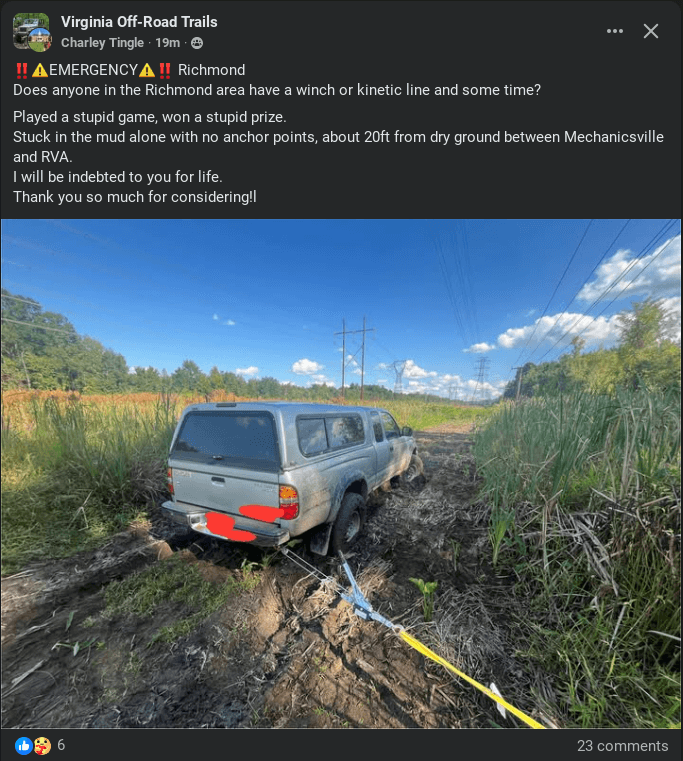
It was one of those moments that makes you pause and think. Off-roading is supposed to be about fun, freedom, and adventure. But that freedom can quickly turn into danger if you hit the trails without a buddy. It’s a rule as old as the sport itself: never go off-roading alone.
And yet, stories like this pop up on Facebook groups, forums, and community pages every single week. People go out solo, something happens, and suddenly they’re stranded—hoping someone will see their post and ride to the rescue. The scary truth is that sometimes no one does, or by the time help arrives, the situation has become much more serious.
This article dives into why you should never wheel alone, the risks of getting stuck, and the real-world consequences of ignoring this cardinal rule.
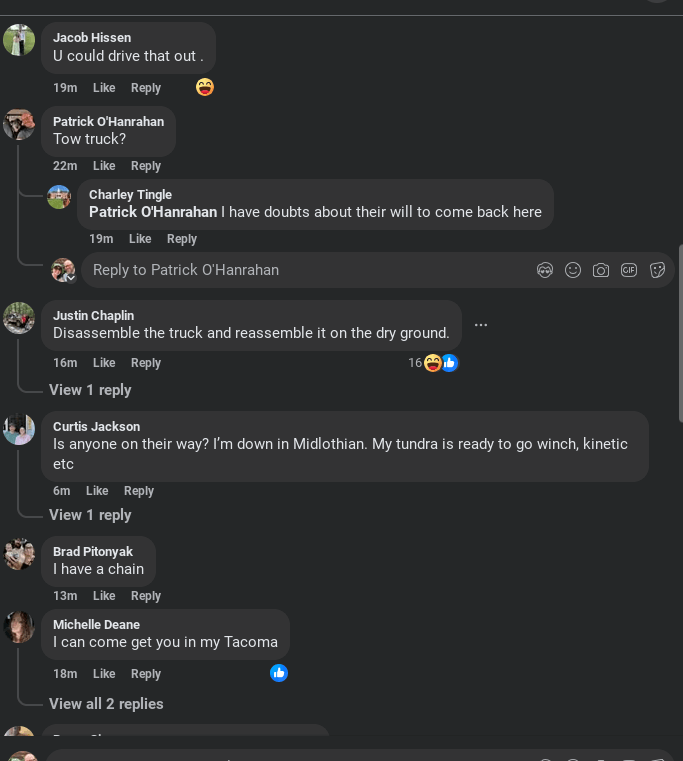
The Illusion of Control
When you first get into off-roading, it’s easy to feel like you’re in control. You’ve got a capable vehicle, a full tank of gas, recovery gear in the back, and maybe even some experience under your belt. That confidence makes it tempting to hit the trails solo.
But off-roading is one of those activities where control is often an illusion. Trails change with the weather. A dry creek bed one week could be a mud pit the next. What looks like solid ground may swallow your tires. Mechanical failures, flat tires, dead batteries, or even something as small as a stuck shifter can leave you stranded miles from the nearest paved road.
And here’s the kicker: no matter how well-prepared you think you are, one unlucky moment can undo it all.
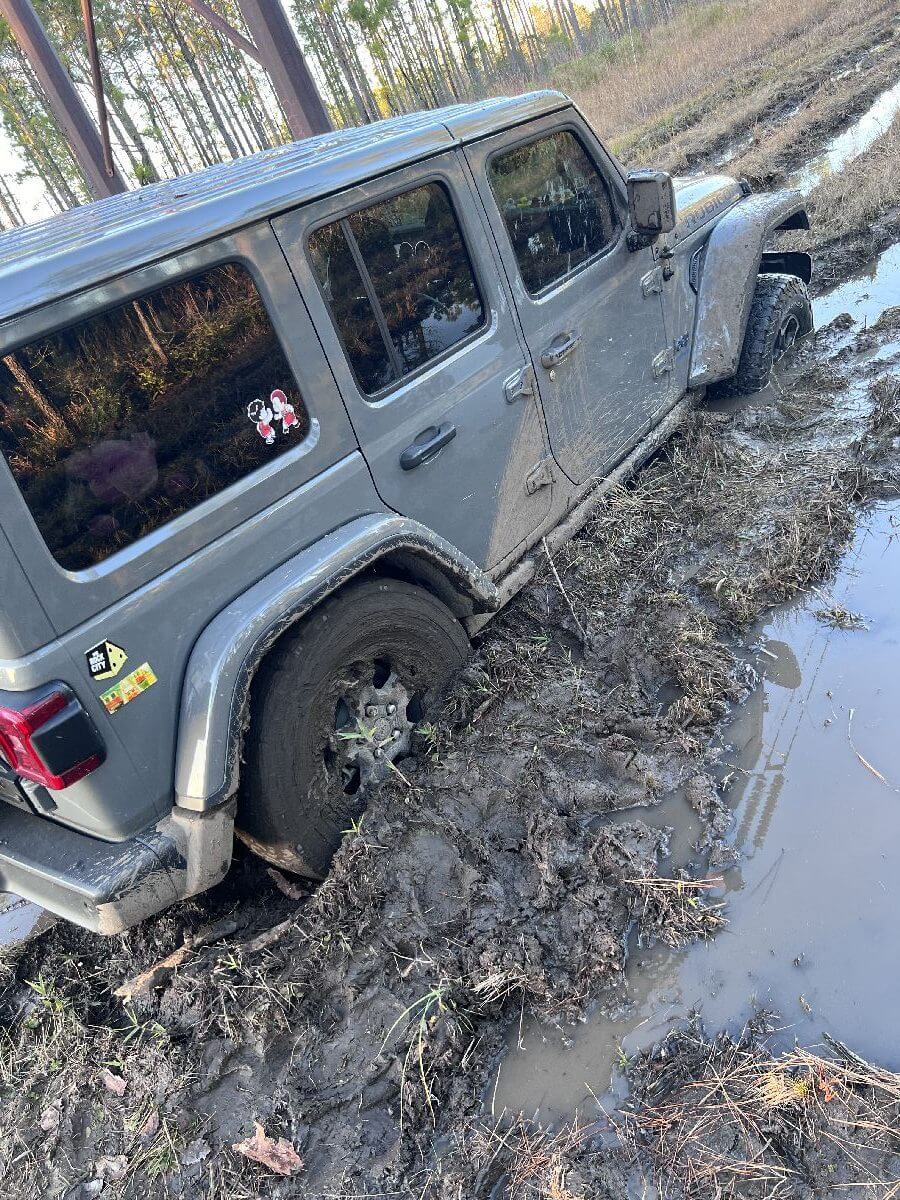
Getting Stuck: The Most Common Problem
The number one issue solo off-roaders face is getting stuck. Whether it’s sand, snow, mud, or rocky terrain, all it takes is one bad line or a soft patch of ground.
If you’re with a group, getting stuck is usually part of the fun. You laugh about it, pull out the recovery gear, and work together to get back on the trail. When you’re alone, though, the entire situation changes. That lighthearted “oops” becomes a major problem.
Without another vehicle to anchor to or someone to help shovel, you could burn hours—or even days—trying to dig yourself out. Worse, you might drain your battery running a winch without another rig to assist with recovery.
That Facebook post I saw is a perfect example. The driver had thought they’d be fine, but once they got stuck, they realized just how limited their options were. With no one around, they had to turn to strangers online for help.
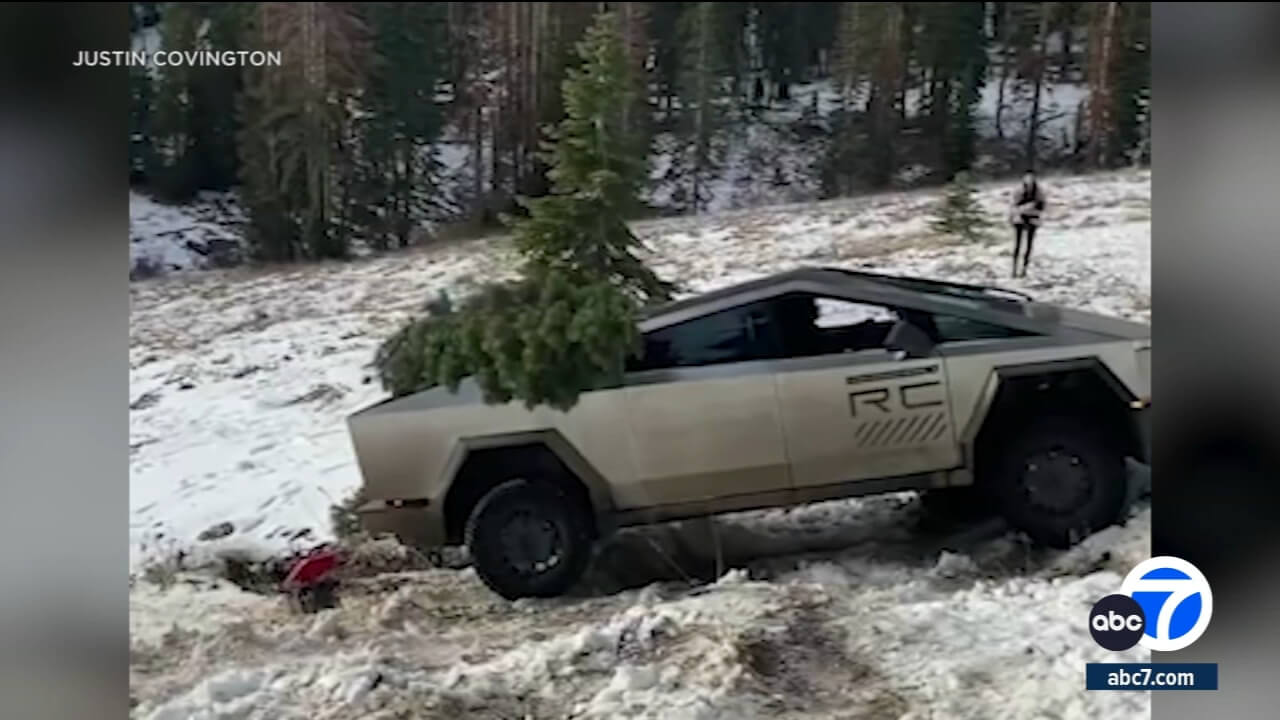
Technology Isn’t Always Enough
You might be thinking: I’ve got a winch, I’ve got a satellite phone, I’ve got GPS—I’ll be fine.
But technology doesn’t replace the value of another set of hands or another vehicle. A winch needs an anchor point. What happens if there are no sturdy trees, rocks, or posts nearby? Even if you’re carrying recovery boards, using them alone is tough. A buddy can hold, guide, and support you during the process.
As for cell service—well, anyone who has spent time off the grid knows it’s far from reliable. Sure, a satellite communicator can call for help, but it’s not instant. And in the meantime, you’re still stranded, possibly injured, and facing long hours of waiting.
The Dangers Go Beyond Vehicles
Off-roading accidents don’t always involve the vehicle itself. Picture this: you’re hiking around your rig to set up recovery gear, and you twist your ankle. Or worse, you slip, hit your head, and suddenly you’re injured with no one around to call for help.
When you’re alone, even minor injuries become major risks. Something as simple as dehydration, heat exhaustion, or hypothermia can become life-threatening if you can’t get back to safety quickly. Having a buddy ensures there’s someone who can stabilize you, call for help, or drive you out.
The Cost of Getting Stuck
Another factor that doesn’t get enough attention: the cost of recovery. Professional off-road recovery isn’t cheap. If no one from the community can or will come help, you may end up having to call a tow or recovery service. Depending on how far out you are, that could cost hundreds—sometimes thousands—of dollars.
Compare that to going with a group. Not only are you safer, but most situations can be handled with a strap, a winch, and some teamwork—no credit card required.
Why People Still Go Alone
If it’s so dangerous, why do people keep doing it? A few common reasons come up again and again:
- Schedule conflicts – Friends aren’t available, but you want to hit the trail now.
- Overconfidence – Believing your rig or skills are good enough to handle anything.
- Privacy – Some folks just like the solitude of wheeling alone.
- Lack of awareness – Newcomers who simply don’t realize the risks.
The problem is, none of those reasons outweigh the dangers. Solitude can be found in camping or hiking; off-roading alone is simply gambling with your safety.
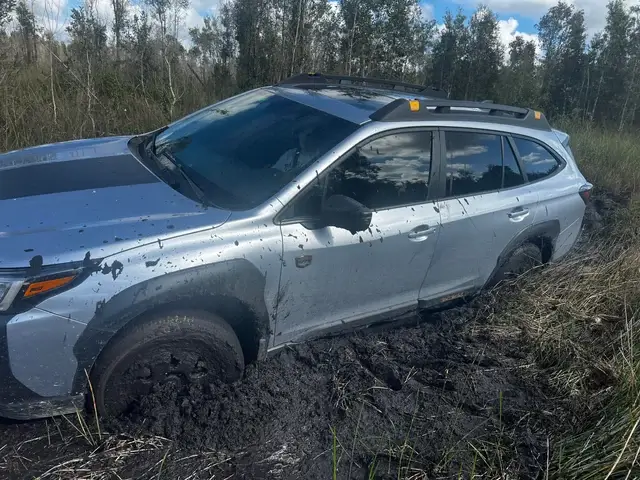
What To Do Instead
So, what should you do if you’re itching to get out on the trail?
- Go with a buddy or group. Even one other vehicle drastically reduces your risks.
- Join a local off-road club. Clubs often schedule group rides, which are perfect for both learning and staying safe.
- Post in community forums or groups. If your friends can’t go, there’s usually someone else in the community who’s up for a ride.
- Educate new off-roaders. Share stories like that Facebook post. Sometimes real-world examples are what it takes to convince people.
The “What If” Factor
Whenever you’re tempted to go out alone, ask yourself: What if I get stuck? What if I break something? What if I get hurt?
If your answer is, “I’ll figure it out,” then you’re already putting yourself at risk. Off-roading is unpredictable, and the best way to prepare is not with more gear or gadgets, but with good company.
Stories From the Trail
Ask any seasoned off-roader, and they’ll have a story of someone who went out alone and regretted it. Vehicles left behind for days because recovery couldn’t happen immediately. Drivers stranded overnight in freezing conditions. Posts like the one I saw on Facebook, where desperation drives people to beg strangers for help.
These aren’t rare stories—they’re common. And they all circle back to one lesson: it’s not worth it.
Final Thoughts
Off-roading is about fun, exploration, and pushing yourself and your rig to the limits. But none of that matters if you end up stuck, stranded, or injured with no help in sight.
That Facebook post was just another reminder of why the golden rule exists: never go off-roading alone.
Because at the end of the day, the goal isn’t just to have an adventure—it’s to make it home safely, with stories to tell and memories to share. And you’ll always have better stories, and safer ones, when you’ve got friends riding alongside you.

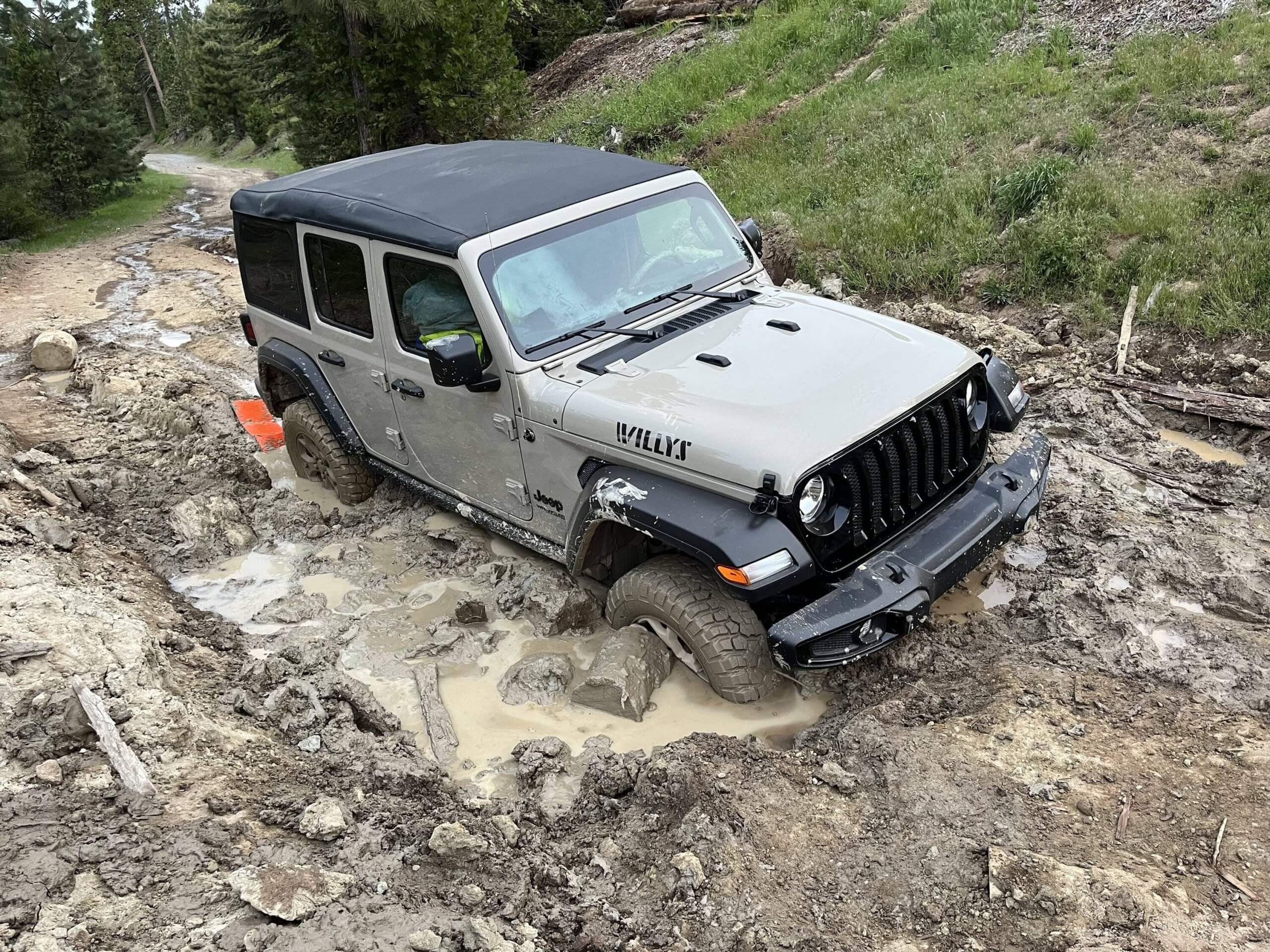
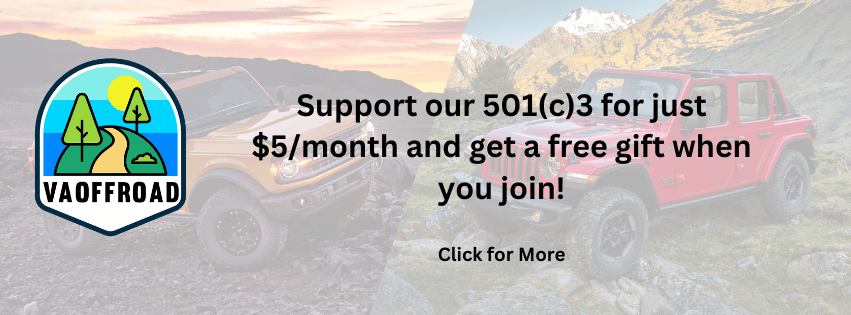

No responses yet